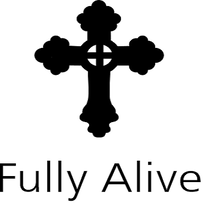Blinded by Power; False Accusations, True Proclamations (Lenten Scriptural Commentary #34)4/8/2019 by John Morton
"Christ is not here telling us “not to judge," as is so often thrown around by those who know so little of Scripture, rather he is telling us that when we judge a person’s soul, we judge wrongly." Fully Alive’s Lenten Scriptural Commentary helps Christians get more out of Lent by taking God’s word seriously. Mostly avoiding personal stories and anecdotes, our commentary dives deeply into the scripture readings for each day and applies them to the broader context of Lent. We use the daily Mass readings from the Catholic lectionary. If possible, read each passage slowly, taking in each word. If you find that you’ve hurried through a reading, read it over a few more times. Let the words reverberate in your heart. After you’ve let it sink in, read our Lenten Scriptural Commentary. Monday of the Fifth Week of Lent In the Old Testament reading today, we hear the story of Susanna, wife of Joakim, who stays true to God in the face of great injustice. She is falsely accused by the elders who are the judges of the Jewish community in Babylon, but Daniel rebukes them. In the Gospel, we hear an important announcement regarding who Christ is. Similarly to the of the story of Susanna, he too is falsely accused, and rebukes the Pharisees who cannot see that the evidence for the truth stands before them. Readings: Dn 13:1-9, 15-17, 19-30, 33-62 / Jn 8:12-20 Click here to read the complete text from the USCCB website Jesus spoke to them again, saying, "I am the light of the world. Whoever follows me will not walk in darkness, but will have the light of life." You judge by appearances, but I do not judge anyone. And even if I should judge, my judgment is valid, because I am not alone, but it is I and the Father who sent me. Even in your law it is written that the testimony of two men can be verified. I testify on my behalf and so does the Father who sent me." So they said to him, "Where is your father?" Jesus answered, "You know neither me nor my Father. If you knew me, you would know my Father also." (cf. JN 8:12, 15-19) First, a clear proclamation as to who Christ is. This should have been obvious to Israelites, but it’s also pretty clear to just about anyone. He is “the light of the world," which is a reference to Isaiah’s “light of nations,” which is inspired by the lighting of the lamps during Passover. The claims he makes about His nature are clear: He is the culmination and perfection of these prophesies and lessons. The Pharisees are judging “by appearances," by the flesh. Christ is not here telling us “not to judge," as is so often thrown around by those who know so little of Scripture, rather he is telling us that when we judge a person’s soul, we judge wrongly. As he says, His judgment is valid, He judges by reality. That isn’t to say we aren’t called to recognize evil from truth, and judge errors in teaching and in actions, but we are never to judge the final state of person’s soul. And when we seek to judge even teaching and behavior, we must do so by the light of Christ. We should never conclude anyone is totally lost. That is something only known to God. Finally, we have Christ defying those who would question His divinity, the beginning of the doctrine of the two natures in Christ, of fully God and of fully man, what will later be called the hypostatic union (definitively established at the Council of Chalcedon, 451). The Pharisees are requiring two witnesses to verify Christ’s claims, as is required in the Law of Moses, but Christ uses these requirements and turns their law around on them to show us His relationship with the Father. But since they do not know the Father, likewise they do not know Him. Only by the light of Christ can we recognize both, can we judge the world rightly, can we transform the way we see the world. In the words of St. Cyril of Alexandria, “Only if it is one and the same Christ who is consubstantial with the Father and with men can He save us, for the meeting ground between God and man is Flesh and Christ.” John Morton is a writer, historian, and theologian from Minnesota. He founded Fully Alive with Erik Ritland in 2017. In addition to writing articles, he is also the podcast co-host and social media content strategist.
1 Comment
|
Authors
Erik Ritland received his MA in Theology in 2017. He's the founder and content manager of Fully Alive Christian Media and Rambling On, copy editor and writer for Music in Minnesota, and an acclaimed songwriter. Archives
April 2019
Categories |

 RSS Feed
RSS Feed
